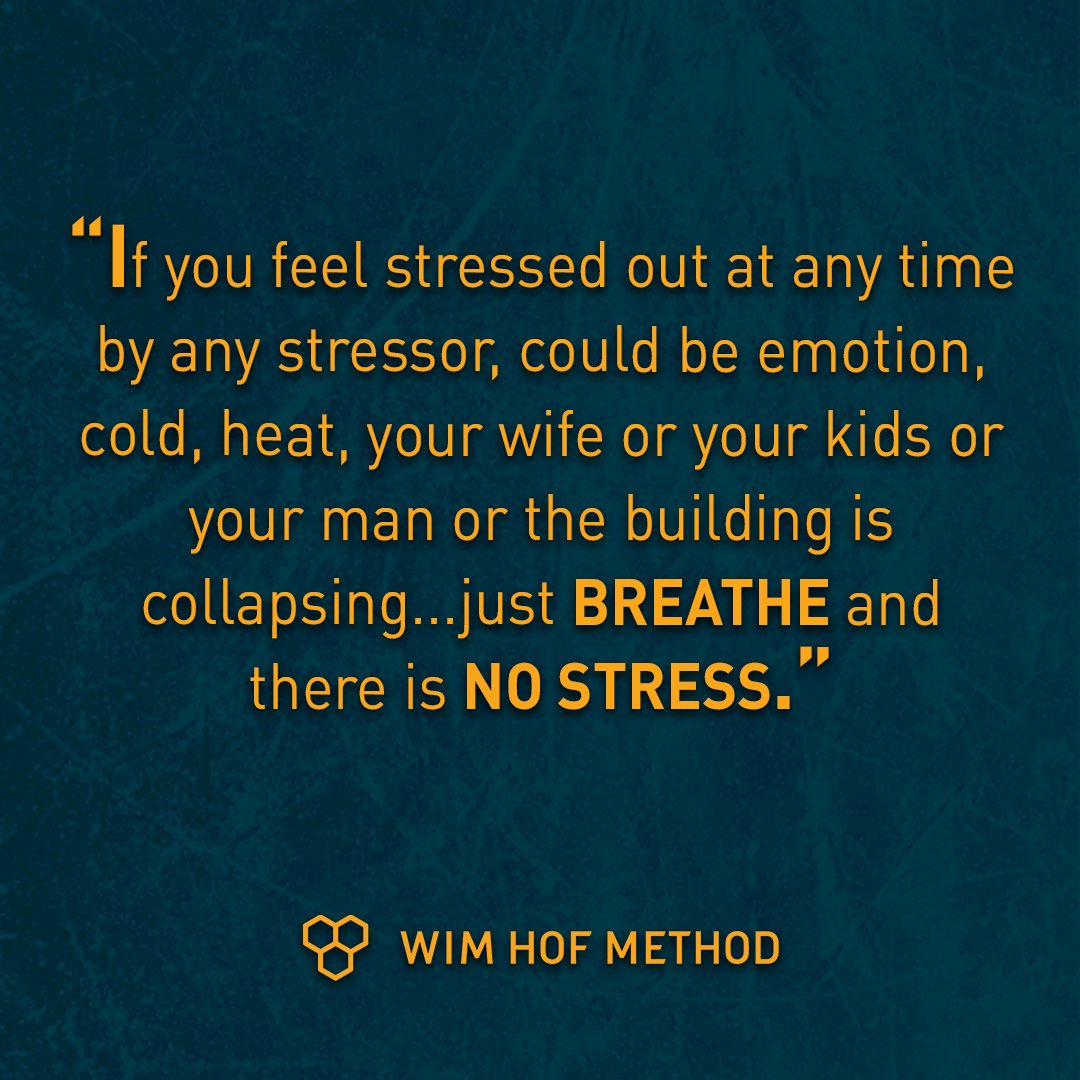


In practical terms any anxiety management programme needs these two elements:ĭeveloping a positive stress mindset - viewing stress as a challenge rather than a threat, and having confidence in one's coping abilityĭeveloping the skills of resilience - quickly and easily letting go of and recovering from the physical stress response (for which biofeedback is, I consider, the ideal tool). I think the causal relationship between anxiety, the physical expressions of anxiety, and the thoughts and mindset associated with anxiety is not simple, but more like chicken-and-egg or a feedback relationship. But what are the implications of all this for anxiety management? That could be very useful, and it's a topic I'm planning to return to in my next blog post. I find it fascinating that it seems to be possible to deliberately activate the sympathetic nervous system and adrenalin. If we think we can cope then the result is some form of excitement or "buzz". Stress as we experience it can be defined as a challenge which we judge may exceed our capacity to cope, and the consequence is a feeling of anxiety. This shows that anxiety can't be simply explained in terms of its physical components. It's also worth noting that Hof's method in itself does not appear to cause anxiety, at least not in Hof himself and his followers. Another example of a hormetic stressor is weight lifting - which in the immediate term slighly damages the muscle fibres but then subsequently the body repairs and grows stronger muscles. It's known that short term stressors can have a beneficial effect in the longer term - that is they can be hormetic stressors, triggering an adaptive response in the body over the slightly longer term. My guess is that it does so because it's a cause of (short term) stress. So Hof's method suggests that it might well be hyperventilation that causes sympathetic activation. The second phase involves a breath hold, and presumably helps recovery from the hypnocapnia induced by the first phase - hypnocapnia being a state of low carbon dioxide, which is problematic because it reduces brain oxygen delivery, causing the known side effects of dizziness and tingling, etc. How does Wim Hof achieve this sympathetic activation? He uses a method of controlled breathing, which you can read more about here.Įssentially, there are two phases to his breathing technique, the first of which is a controlled or voluntary hyperventilation. Anyway it's clearn that sympathetic activation is playing a role. The programme doesn't address this but it's thought that the SNS can directly raise metabolic rate itself, so it's not clear how much of the effect of the Hof method is down to adrenalin and how much is the SNS acting directly.

He does this by significantly raising his adrenalin levels.Īdrenalin is of course secreted by the kidneys in response to stimulation by the sympathetic nervous system (SNS). The researchers investigating Hof found that he is able to keep his core body temperature high by increasing his metabolic rate (that is, the rate at which his cells burn through calories to release energy, which ultimately ends up as heat). Hof is exceptional because he's developed a technique that enables him to survive in ice for up to two hours - conditions that would kill most of us within an hour.
WIM HOF BREATHING ANXIETY TV
The TV show I saw was "Incredible Medicine: Dr Weston's Casebook" (episode 2) and in particular a segment that focused on Wim Hof, aka "the ice man". But arguably I've got it the wrong way round: perhaps anxiety causes sympathetic activation and over-breathing, and perhaps anxiety is caused by negative beliefs, assumptions, and other narratives that play in our heads, as Cognitive Behavioural Therapy would have it. The most relevant question is, how do we best manage or reduce anxiety? In my opinion, by addressing the causal factors, and that means both sympathetic over-activation and hyperventilation.

And over-breathing is linked particularly to panic (extreme anxiety). Sympathetic activation is the mechanism (or at least a major part of it) behind the "fight or flight" response, which pretty much is the bodily component of fear and anxiety. I was prompted to think about this question by a BBC documentary I saw recently - I'll say more about that in a minute but first I'll say more about why the question is pertinent.īoth over-breathing and sympathetic activation are associated with anixety. What is the relationship between over-breathing (hyperventilation) and sympathetic nervous system arousal? Does over-breathing cause sympathetic activation or is it vice versa? Does Over-breathing (Hyperventilation) Cause Sympathetic Activation?


 0 kommentar(er)
0 kommentar(er)
